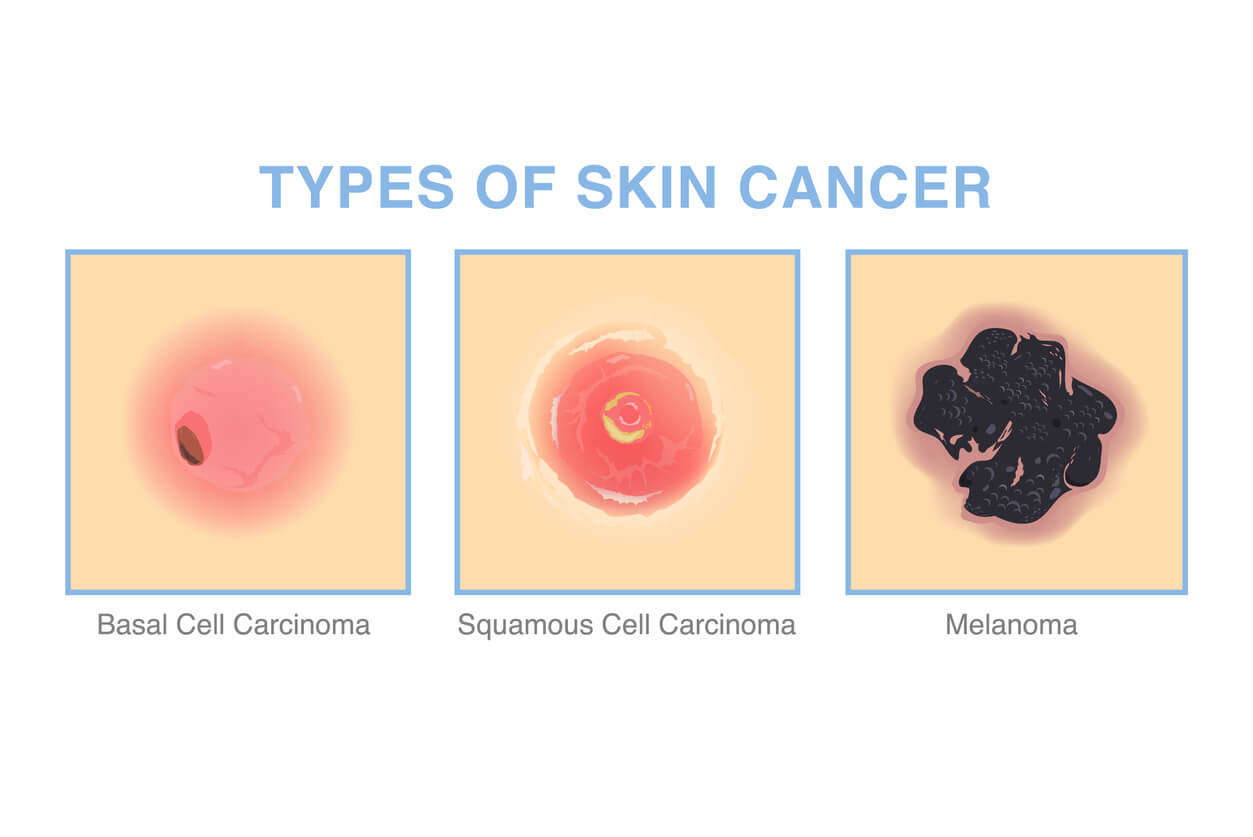Written by Dr. Ringpfeil

Skin cancer refers to the uncontrolled growth of cells in the skin, primarily affecting the outer epidermis layer. There are four main types of skin cancer, with basal cell carcinoma being the most common and least deadly. Squamous cell carcinoma typically develops on sun-exposed skin in older individuals, appearing as thin, flat cells on the skin’s surface. Basal cell carcinoma progresses slowly and rarely spreads to other parts of the body. It is characterized by round cells that may form slightly raised areas. Melanoma, although less common, is more dangerous and develops in the deeper layers of the skin, often appearing darkly pigmented. Early surgical intervention can effectively cure most cases of skin cancer, but untreated melanoma can quickly progress to a more malignant form.
Exposure to UV radiation from the sun is a significant risk factor for skin cancer, as it can cause irreversible damage to the skin cells’ DNA and life cycle. Individuals with a history of untreated burns and certain genetic factors may be more predisposed to developing skin cancer. Using sunscreen regularly when outdoors is one of the simplest ways to protect against skin cancer. It’s important to note that the SPF factor indicates the time duration for which a person can avoid getting sunburned, so sunscreen should be reapplied frequently.
While skin cancers can be initially detected at home, a formal diagnosis is made in a doctor’s office. Skin cancers often appear different from the surrounding skin, exhibiting changes in color and texture. They may resemble irregularly bordered moles or patches of skin with yellow, red, brown, black, or scar-like appearances. Most importantly, skin cancers appear distinct from the surrounding skin. If skin cancer is suspected, a biopsy is typically performed, where a small portion of the abnormal skin is removed and examined for cancerous cells.
The type and stage of the tumor determine the treatment options and the likelihood of curing the cancer. The stage indicates the size of the tumor, whether it has spread to lymph nodes, and if it has metastasized to other parts of the body. The main treatment modalities for skin cancer are surgery, radiation therapy, chemotherapy, and photodynamic (laser) therapy.
After completing the necessary treatment, close observation of the affected area is crucial for both the doctor and the patient to monitor any signs of recurrence. If the cancer returns, the doctor may consider alternative treatment approaches based on individual circumstances. The likelihood of eliminating the cancer and preventing its return depends on various factors, including age, genetics, and the initial stage of the cancer. It is important to communicate with friends and family for support, especially as treatment may require time away from work. Maintaining overall health is key to increasing the chances of successfully overcoming skin cancer.
American Cancer Society
1599 Clifton Rd, NE
Atlanta, GA 30329
Tel: 800-227-2345
Tel: 404-320-3333
FAX: 404-325-2217
https://www.cancer.org/
National Cancer Institute
Office of Communications
National Institute for Health
9000 Rockville Pike
Bldg 31, Room 10A31
Bethesda, MD 20892
Contact: Paul Van Nevel
Tel: 301-496-6631
Tel: 800-4-CANCER
FAX: 301-402-4945
https://www.cancer.org/
Patients ask Dr. Ringpfeil answers
Please feel free to use this form to ask our dermatologists questions about this treatment.